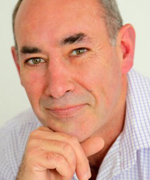A business mentor says advisers will need to create an Armageddon budget to survive the current economic shock.
Speaking during a Financial Advice NZ webinar on 2 April, Tony Vidler – a financial adviser and owner of Strictly Business – told around 260 online participants that advisers need to manage their cash, review their resources, and “prepare an Armageddon budget”.
“This time is different,” he said referring to the country-wide lockdown and its subsequent impact on normal trading conditions. “This is way different to anything I have seen in the financial services sector.”

He told advisers to think about what they need to do to survive, and then “…how can I get back in the game?”
“Because if you survive then you are still in the game, you’re still fighting,” he said. “Know what your bottom line is, know what costs you can’t cut. Work out what revenue is likely to stop completely so that you can work out where the boundaries are.”
Vidler compares the coming months to the time following the 2011 Christchurch earthquakes and the effect it had the Cantabrian advisory community. He recommends advisers clean out the rubble.
“We can’t build anything new, we can’t make progress, we can’t rebuild until we have got rid of the debris,” he told the online audience.
“We are using inefficient processes, we are not using staff to their best potential. This is a great time to redesign the business of the future.”
He suggested advisers make greater use of technology such as video conferencing for client meetings – even after society returns to something near normal.
There is a world of opportunity to build good things out of this…
“We can make the business more efficient using video conferencing to save time,” he said. “Consumers are getting used to using this technology, they are comfortable with it. There is a world of opportunity to build good things out of this.”
Vidler says the post-earthquake period had four distinct stages: triage, care, clean-up, and planning.
“We are in the triage period,” he said. “Then there will be a lot of hand-holding for 12 to 18 months to get clients back to a position of solvency and strength.
“I don’t think we will have any issue telling clients about creating an emergency fund. That will be a really easy sell.”
Our number one job is managing emotions and managing fears…
He says that in the short-term, advisers are no longer in the advice business.
“We are in the reassurance business,” he said. “Our number one job is managing emotions and managing fears. It is not about giving advice on products, or on plans for the long-term – it is time to help people get through the short term.”
Vidler says the most powerful question advisers can ask their clients is “how are you doing?” Not “what do you need me to do for you?”
“You have to shift your mindset a little bit in how to service clients, it’s a lot more emotional now,” he said.
“I think the metric that matters – after you have done your Armageddon budget – is how many clients did you help today. Or how many clients did you engage with today.”
We are trying to retain relationships, not business…
How you interact with your clients now, says Vidler, sets the path back to business.
“We are trying to retain relationships, not business,” he said. “Even if we lose a piece of business now, if we manage this period properly, we will get that business back in three or 12 months down the track. We want to be in the relationship retention business.
He said advisers need to “double-down” on their communication with clients.
“It needs to be one-to-one conversations [with clients] because that is what they will remember and keep them as clients,” he said.





